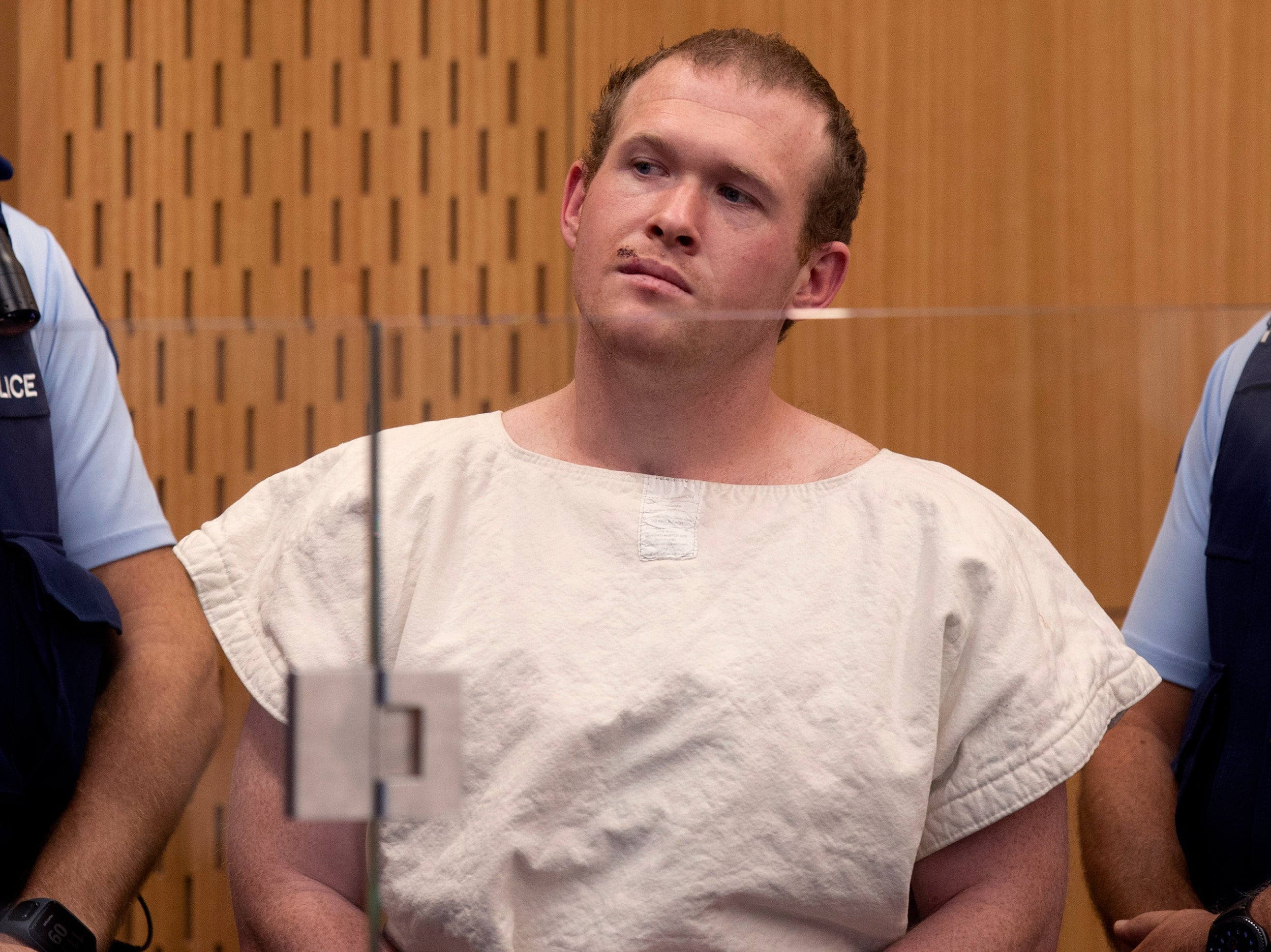Christchurch shooting: Brenton Tarrant admits carrying out deadly New Zealand mosque attacks
29-year-old initially entered not guilty plea with trial set to begin in June

Your support helps us to tell the story
From reproductive rights to climate change to Big Tech, The Independent is on the ground when the story is developing. Whether it's investigating the financials of Elon Musk's pro-Trump PAC or producing our latest documentary, 'The A Word', which shines a light on the American women fighting for reproductive rights, we know how important it is to parse out the facts from the messaging.
At such a critical moment in US history, we need reporters on the ground. Your donation allows us to keep sending journalists to speak to both sides of the story.
The Independent is trusted by Americans across the entire political spectrum. And unlike many other quality news outlets, we choose not to lock Americans out of our reporting and analysis with paywalls. We believe quality journalism should be available to everyone, paid for by those who can afford it.
Your support makes all the difference.Brenton Tarrant, the man accused of carrying out the Christchurch mosque attacks that led to the deaths of 51 people in one of New Zealand‘s darkest days, has admitted to 51 counts of murder after initially entering a not guilty plea.
Tarrant had been due to attend court in June having repeatedly maintained his innocence in the attack in which 49 people were also injured last March.
However, the 29 year-old entered his pleas at a special, hastily arranged hearing in Christchurch on Thursday morning – appearing via video link as part of coronavirus precautions.
He also pleaded guilty to 40 charges of attempted murder and a terrorism charge, and now faces the prospect of a lifetime behind bars. A sentencing date has yet to be set.
Tarrant was the first person in the nation’s history to have a terror charge brought against them.
In an attack he broadcast live on Facebook, the gunman, armed with semi-automatic weapons, targeted Muslims attending Friday prayers in Christchurch on 15 March.
The incident was New Zealand’s worst peacetime mass shooting, and also marked a political turning point in the nation’s relationship with guns.
In its immediate aftermath the incident led to a nationwide buyback of semi-automatic and military-grade weapons that saw more than 50,000 guns purchased from citizens by the government.
Following the attack, New Zealand’s prime minister Jacinda Ardern vowed never to say the accused man’s name. In June last year she helped lead a global pledge named the “Christchurch Call”, aimed at boosting efforts to keep internet platforms from being used to spread hate, organise extremist groups and broadcast attacks.
Join our commenting forum
Join thought-provoking conversations, follow other Independent readers and see their replies
Comments